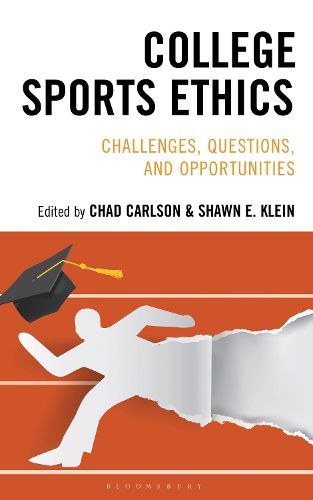Readings Newsletter
Become a Readings Member to make your shopping experience even easier.
Sign in or sign up for free!
You’re not far away from qualifying for FREE standard shipping within Australia
You’ve qualified for FREE standard shipping within Australia
The cart is loading…






Designed to spark necessary conversations about ethics in college sports, this collection focuses on the kinds of ethical concerns that arise at the intersection of athletics and education, such as fairness, athletic excellence, and athlete well-being. The first chapters examine college sports at a systematic level, considering the ways we can evaluate college sport as a whole, as well as how we ought to structure college sports in ways that are fairer and better tests of athletic excellence. The second section looks more closely at the interplay of the academic institutions and athletics, arguing that since college sports programs are part of institutions of higher learning, we need to consider the purposes of these institutions when evaluating college sports. Moreover, the well-being and protection of college athletes is central to an ethically defensible college system. The last section of chapters explores several controversial issues in college sports, including gender inequality and transgender participation.
It is clear that over the coming decade the landscape of college athletics will change dramatically. Moral philosophers will need to pay attention to these changes and examine the justification and consequences of these transformations.
$9.00 standard shipping within Australia
FREE standard shipping within Australia for orders over $100.00
Express & International shipping calculated at checkout
Stock availability can be subject to change without notice. We recommend calling the shop or contacting our online team to check availability of low stock items. Please see our Shopping Online page for more details.
Designed to spark necessary conversations about ethics in college sports, this collection focuses on the kinds of ethical concerns that arise at the intersection of athletics and education, such as fairness, athletic excellence, and athlete well-being. The first chapters examine college sports at a systematic level, considering the ways we can evaluate college sport as a whole, as well as how we ought to structure college sports in ways that are fairer and better tests of athletic excellence. The second section looks more closely at the interplay of the academic institutions and athletics, arguing that since college sports programs are part of institutions of higher learning, we need to consider the purposes of these institutions when evaluating college sports. Moreover, the well-being and protection of college athletes is central to an ethically defensible college system. The last section of chapters explores several controversial issues in college sports, including gender inequality and transgender participation.
It is clear that over the coming decade the landscape of college athletics will change dramatically. Moral philosophers will need to pay attention to these changes and examine the justification and consequences of these transformations.